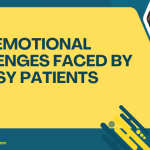Table of Contents
- Introduction
- 1. Educate Yourself and Others
- 2. Build a Support Network
- 3. Maintain a Healthy Lifestyle
- 4. Develop a Routine
- 5. Utilize Stress-Reduction Techniques
- Conclusion
- FAQs
Introduction
Living with epilepsy can present unique challenges, but understanding how to cope effectively can significantly improve the quality of life for those affected. From managing seizures to addressing social stigmas, it’s essential to develop coping strategies that empower individuals and provide necessary support. This article explores five effective coping mechanisms for living with epilepsy, helping you or your loved ones navigate this condition with confidence.
1. Educate Yourself and Others
Education is the cornerstone of managing epilepsy. By understanding the condition, you can demystify it and reduce anxiety. Here’s how to get started:
- Learn about Epilepsy: Familiarize yourself with the types of seizures, triggers, and treatment options. Websites like the Epilepsy Foundation offer comprehensive resources.
“Knowledge is power; understanding your condition is the first step in taking control.”
- Share Information: Educate your family, friends, and coworkers about epilepsy. This can help dispel myths and reduce stigma, as discussed in our article on Top 5 Myths About Neuro Care Debunked.
- Stay Updated: Keep abreast of the latest research and treatment advancements. Engaging with community forums and attending webinars can be beneficial.
Benefits of Education:
| Benefit | Description |
|---|---|
| Reduces Fear | Knowledge helps alleviate anxiety about the unknown. |
| Encourages Support | Informed individuals are more likely to offer help. |
| Promotes Understanding | Enhances empathy and reduces stigma. |
2. Build a Support Network
Having a solid support system is crucial for emotional well-being. Here are ways to create a strong network:
- Connect with Others: Join support groups either online or in-person. Organizations like the Epilepsy Foundation provide resources to connect with local groups.
“No one should face their challenges alone; find strength in community.”
- Involve Family and Friends: Encourage open conversations about your experiences and needs. A supportive environment can make a world of difference.
- Seek Professional Help: Don’t hesitate to talk to mental health professionals who understand epilepsy. They can offer coping techniques and therapy tailored to your needs. You can read more about the importance of support in Top 5 Ways Family Support Enhances Neuro Recovery.
Why Support Matters:
- Emotional Resilience: Sharing experiences with others can foster resilience.
- Practical Assistance: Friends and family can help with daily tasks or accompany you to appointments.
- Informed Advocacy: A well-informed network can advocate for you in various settings, from schools to workplaces.
3. Maintain a Healthy Lifestyle
A healthy lifestyle can significantly impact seizure management and overall well-being. Consider the following:
- Balanced Diet: A nutritious diet supports brain health. Focus on whole foods, fruits, vegetables, and omega-3 fatty acids. For more dietary insights, check out Top 5 Foods to Enhance Your Brain Health Naturally.
“You are what you eat; nourish your body for optimal brain function.”
- Regular Exercise: Physical activity can help reduce stress and improve mood. Aim for at least 150 minutes of moderate exercise weekly. Consult your doctor for personalized recommendations.
- Adequate Sleep: Sleep deprivation is a common seizure trigger. Establish a consistent sleep schedule and create a relaxing bedtime routine. Refer to Top 5 Ways Sleep Impacts Your Brain Health Function for more on this topic.
Tips for a Healthy Lifestyle:
| Area | Recommendations |
|---|---|
| Diet | Incorporate a variety of nutrients, limit processed foods. |
| Exercise | Engage in activities you enjoy to stay motivated. |
| Sleep | Aim for 7-9 hours of quality sleep each night. |
4. Develop a Routine
Having a structured daily routine can help manage epilepsy effectively. Here’s how to create one:
- Consistent Schedule: Try to wake up, eat, and go to bed at the same time every day. Consistency can help reinforce your body’s natural rhythms.
“Routine brings stability; establish a rhythm that works for you.”
- Medication Management: Set reminders for medications and track dosages. Pill organizers can be a practical tool.
- Plan for Triggers: Identify and plan around known triggers, such as stress or lack of sleep. Keeping a journal can help you recognize patterns. For more on managing triggers, see Top 5 Common Triggers of Seizures to Know.
The Importance of Routine:
| Aspect | Benefit |
|---|---|
| Predictability | Reduces anxiety by providing a sense of control. |
| Health Management | Helps ensure consistent medication adherence. |
| Lifestyle Balance | Encourages a balanced approach to daily activities. |
5. Utilize Stress-Reduction Techniques
Stress can trigger seizures, making it essential to develop effective stress management strategies. Consider these techniques:
- Mindfulness and Meditation: Practicing mindfulness can reduce anxiety and enhance focus. Apps like Headspace or Calm can guide you through meditation. Learn more about how mindfulness helps in Top 5 Ways Meditation Boosts Brain Wellness.
“In the chaos of life, find your center through mindfulness.”
- Deep Breathing Exercises: Simple breathing exercises can help you regain control during stressful moments. Try inhaling deeply for a count of four, holding for four, and exhaling for four.
- Engage in Hobbies: Pursuing activities you enjoy can serve as a wonderful distraction and boost your mood.
Effective Stress-Reduction Techniques:
| Technique | Description |
|---|---|
| Mindfulness | Focus on the present to alleviate anxiety. |
| Deep Breathing | Control your breath to manage stress levels. |
| Hobbies | Engage in enjoyable activities to uplift mood. |
Conclusion
Living with epilepsy may come with its challenges, but by implementing these coping mechanisms, you can take charge of your life and manage the condition more effectively. Remember, it’s about finding what works best for you and seeking support when needed. For additional insights into managing neurological health, check out our article on Top 5 Essential Insights on Neuro Care You Need to Know.
“Empower yourself with knowledge, support, and healthy habits to thrive with epilepsy.”
FAQs
Q: Can I drive if I have epilepsy?
A: Driving regulations vary by state or country. Many places require a seizure-free period before you can obtain a license. Always consult your healthcare provider for guidance.
Q: Are there dietary restrictions for people with epilepsy?
A: Some individuals may benefit from specific diets, such as the ketogenic diet, but it’s essential to discuss dietary changes with your doctor.
Q: How can I help someone with epilepsy?
A: Educate yourself about epilepsy, offer emotional support, and be understanding of their needs. Always know how to respond in case of a seizure. You might also find useful insights in Top 5 Emergency Neuro Care Tips When Every Second Counts.
For more information on managing epilepsy, consider visiting the Epilepsy Foundation.
By fostering a positive mindset and utilizing these coping strategies, you can lead a fulfilling life while managing epilepsy.






